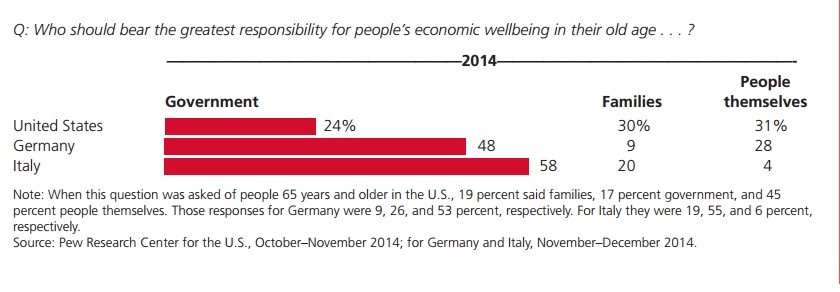

Chief Justice John Roberts (Photo: AP)
I feel compelled to comment on the Supreme Court’s latest ObamaCare decision, though I could sum up my reaction with one word: disgust.
- I’m disgusted that we had politicians who decided in 2009 and 2010 to further screw up the healthcare system with ObamaCare.
- I’m disgusted the IRS then decided to arbitrarily change the law in order to provide subsidies to people getting insurance through the federal exchange, even though the law explicitly says those handouts were only supposed to go to those getting policies through state exchanges (as the oily Jonathan Gruber openly admitted).
- I’m disgusted that the lawyers at the Justice Department and the Office of White House Counsel didn’t have the integrity to say that handouts could only be given to people using state exchanges.
- But most of all, I’m disgusted that the Supreme Court once again has decided to put politics above the Constitution.
In theory, the courts play a valuable role in America’s separation-of-powers system. They supposedly protect our freedoms from majoritarianism. And they ostensibly preserve our system of checks and balances by preventing other branches of the federal government from exceeding their powers.
To be sure, the courts – including and especially the Supreme Court – have not done a good job in some areas. Ever since the 1930s, for instance, they’ve completely failed to limit the federal government to the enumerated powers in Article 1, Section 8, of the Constitution.
The Supreme Court’s first ObamaCare decision back in 2012 then took that negligence to a higher level.
Now we have a second Obamacare decision. And this one may be even more outrageous because the Supreme Court decided to act as a pseudo-legislature by arbitrarily re-writing Obamacare.
Here’s what George Will wrote about the decision.
The most durable damage from Thursday’s decision is not the perpetuation of the ACA, which can be undone by what created it — legislative action. The paramount injury is the court’s embrace of aduty to ratify and even facilitate lawless discretion exercised by administrative agencies and the executive branch generally. …The decision also resulted from Chief Justice John G. Roberts Jr.’s embrace of the doctrine that courts, owing vast deference to the purposes of the political branches, are obligated to do whatever is required to make a law efficient, regardless of how the law is written. What Roberts does by way of, to be polite, creative construing (Justice Antonin Scalia, dissenting, calls it “somersaults of statutory interpretation”) is legislating, not judging. …Thursday’s decision demonstrates how easily, indeed inevitably, judicial deference becomes judicial dereliction, with anticonstitutional consequences. We are, says William R. Maurer of the Institute for Justice, becoming “a country in which all the branches of government work in tandem to achieve policy outcomes, instead of checking one another to protect individual rights.
Here’s the bottom line, from Will’s perspective.
The Roberts Doctrine facilitates what has been for a century progressivism’s central objective, the overthrow of the Constitution’s architecture. The separation of powers impedes progressivism by preventing government from wielding uninhibited power.
Here’s how my Cato colleagues reacted, starting with Michael Cannon, our healthcare expert whose heroic efforts at least got the case to the Supreme Court.
…the Supreme Court allowed itself to be intimidated. …the Court rewrote ObamaCare to save it—again. In doing so, the Court has sent a dangerous message to future administrations… The Court today validated President Obama’s massive power grab, allowing him to tax, borrow, and spend $700 billion that no Congress ever authorized. This establishes a precedent that could let any president modify, amend, or suspend any enacted law at his or her whim.
Now let’s look at the responses of two of Cato’s constitutional scholars. Roger Pilon is less than impressed, explaining that the Roberts’ decision is a bizarre combination of improper deference and imprudent activism.
With Chief Justice Roberts’s opinion for the Court, therefore, we have a perverse blend of the opposing positions of the judicial restraint and activist schools that reigned a few decades ago. To a fault, the Court today is deferential to the political branches, much as conservatives in the mold of Alexander Bickel and Robert Bork urged, against the activism of the Warren and Burger Courts. But its deference manifests itself in the liberal activism of a Justice Brennan, rewriting the law to save Congress from itself. As Scalia writes, “the Court forgets that ours is a government of laws and not of men.”
And Ilya Shapiro also unloads on this horrible decision.
Chief Justice Roberts…admits, as he did three years ago in the individual-mandate case, that those challenging the administration are correct on the law. Nevertheless, again as he did before, Roberts contorts himself to eviscerate that “natural meaning” and rewrite Congress’s inartfully concocted scheme, this time such that “exchange established by the state” means “any old exchange.” Scalia rightly calls this novel interpretation “absurd.” …as Justice Scalia put it, “normal rules of interpretation seem always to yield to the overriding principle of the present Court: The Affordable Care Act must be saved.” …like three years ago, we have a horrendous bit of word play that violates all applicable canons of statutory interpretation to preserve the operation of a unpopular program that has done untold damage to the economy and health care system.
Now I’ll add my two cents, at least above and beyond expressing disgust. But I won’t comment on the legal issues since that’s not my area of expertise.
Instead I’ll have a semi-optimistic spin. I wrote in 2013 that we should be optimistic about repealing Obamacare and fixing the government-caused dysfunctionalism (I don’t think that’s a word, but it nonetheless seems appropriate) of our healthcare system.
This latest decision from the Supreme Court, while disappointing, doesn’t change a single word of what I wrote two years ago.
P.S. Since today’s topic (other than my conclusion) was very depressing, let’s close by looking at something cheerful.
I’ve commented before that America has a big advantage over Europe because of a greater belief in self-reliance and a greater suspicion of big government.
Well, now we have further evidence. Here’s some polling data from AEI’s most recent Political Report. As you can see, there’s a much stronger belief in self-sufficiency in the United States than there is in either Germany or Italy.

Polling data like this is yet another sign of America’s superior social capital.
And so long as Americans continue to value freedom over dependency, then there’s a chance of fixing the mess in Washington. Not just Obamacare, but the entire decrepit welfare state.







nightmare / June 29, 2015
You are spinning in the wrong direction .You are just unhappy. concerning the Greek situation it was created by people that cheated on their taxes .
/